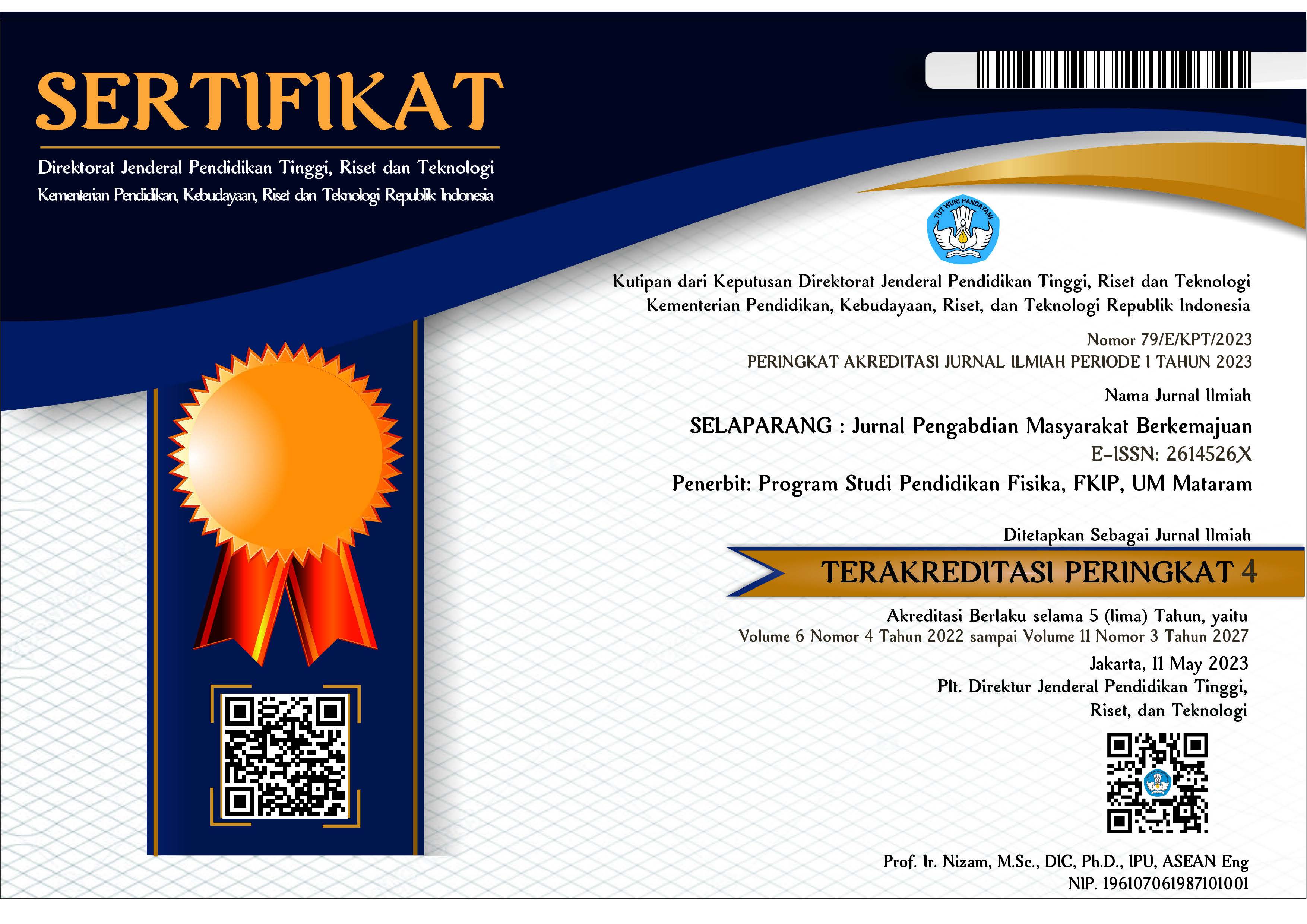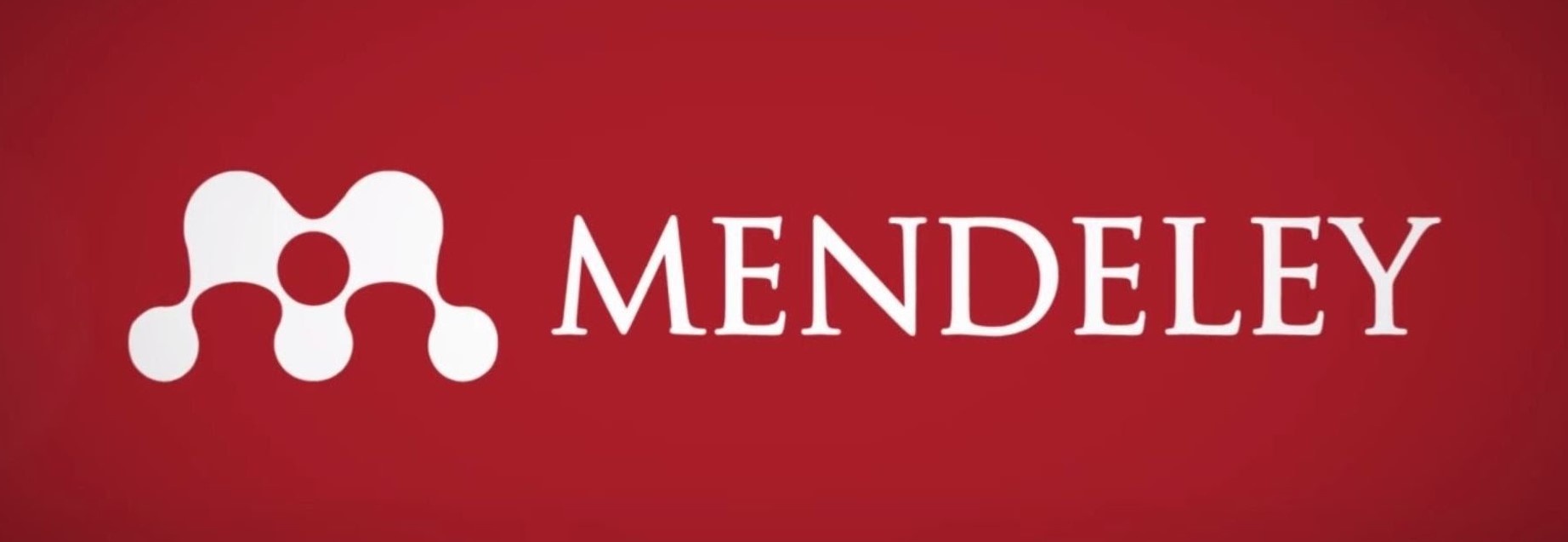Peningkatan minat belajar kimia siswa SMAN 3 Kubu melalui pembelajaran berbasis permainan
Abstract
Abstrak
SMAN 3 Kubu merupakan sekolah di Kecamatan Kubu, Kabupaten Kubu Raya, yang telah meraih akreditasi B pada tahun 2018. Namun, sekolah ini menghadapi tantangan dalam meningkatkan minat dan hasil belajar kimia siswa, akibat persepsi kimia sebagai mata pelajaran sulit dan keterbatasan fasilitas laboratorium. Untuk mengatasi hal ini, kegiatan pengabdian ini bertujuan meningkatkan minat belajar kimia melalui pembelajaran berbasis permainan yang interaktif dan berpusat pada siswa sesuai kurikulum merdeka. Kegiatan pengabdian dilakukan meliputi pendataan permainan kimia dari literatur, penyusunan katalog, pembuatan media permainan, dan pelaksanaan pembelajaran berbasis permainan di kelas. Kegiatan pembelajaran berlangsung pada 22 April 2024 dari pukul 09.55 hingga 11.55 WIB, melibatkan 22 siswa dan 1 guru kimia. Permainan seperti congklak modifikasi untuk konfigurasi elektron serta permainan papan dan kartu kimia digunakan untuk menciptakan suasana belajar yang menyenangkan. Hasil kegiatan menunjukkan bahwa katalog permainan kimia berhasil disusun dan media pembelajaran diuji coba di kelas, meningkatkan antusiasme serta pemahaman siswa terhadap konsep kimia abstrak. Observasi yang dilakukan pada saat pembelajaran menunjukkan adanya interaksi antara siswa dan guru juga meningkat. Dengan pendekatan inovatif ini, pengabdian ini memberikan kontribusi nyata terhadap pembelajaran kimia yang inovatif dan menyenangkan di SMAN 3 Kubu.
Kata kunci: kimia; pengabdian; pembelajaran; permainan; SMA.
Abstract
SMAN 3 Kubu, located in Kubu District, Kubu Raya Regency, achieved B accreditation in 2018. However, the school faces challenges in increasing students' interest and performance in chemistry due to its perception as a difficult subject and limited laboratory facilities. To address these issues, this community engagement program aimed to enhance students' interest in chemistry through interactive, student-centered game-based learning aligned with the Merdeka curriculum. The program involved identifying chemistry games from literature, compiling a catalog, developing game-based learning media, and implementing these games in the classroom. The instructional session was conducted on 22 April 2024, spanning 09:55 to 11:55 WIB, with participation from 22 students and one educator. Games such as modified congklak for electron configuration and chemistry-themed board and card games were used to create an engaging learning environment. The results demonstrated the successful compilation of a chemistry game catalog and the development of learning media, which were trialed in classrooms, significantly increasing students' enthusiasm and understanding of abstract chemistry concepts. Evaluation indicated improvements in students' average scores and enhanced interactions between students and teachers. This innovative approach provided a tangible contribution to fostering engaging and effective chemistry learning at SMAN 3 Kubu.
Keywords: chemistry; community service; games; high school; learning.
Keywords
Full Text:
PDFReferences
Aliffah, N., Ashadi, & Hastuti, B. (2013). Pengaruh Metode Pembelajaran Koopertif Tipe Teams Games Tournament (TGT) dan Gaya Belajar Terhadap Prestasi Belajar Siswa Pada Materi Pokok Hidrolisis Garam Kelas XI Semester 2 SMA Negeri 4 Surakarta Tahun Pelajaran 2012/2013. Jurnal Pendidikan Kimia, 2(4), 80–89.
Angelin, M., & Ramström, O. (2010). Where’s Ester? A Game That Seeks the Structures Hiding Be-hind the Trivial Names. Journal of Chemical Education, 87(4), 406–407. https://doi.org/10.1021/ed800129r
Ansori, D., & Fathir, A. (2024). Pengaruh Model Pembelajaran Game Based Learning Untuk Mening-katkan Minat Belajar Siswa Kelas X Di Sekolah MA Miftahul Ulum Bettet Pamekasan. Jurnal Pengembangan dan Penelitian Pendidikan, 6(4), 1–11.
Bayir, E. (2014). Developing and Playing Chemistry Games To Learn about Elements, Compounds, and the Periodic Table: Elemental Periodica, Compoundica, and Groupica. Journal of Chemical Education, 91(4), 531–535. https://doi.org/10.1021/ed4002249
Brydges, S., & Dembinski, H. E. (2019). Catalyze! Lowering the Activation Barriers to Undergraduate Students’ Success in Chemistry: A Board Game for Teaching Assistants. Journal of Chemical Education, 96(3), 511–517. https://doi.org/10.1021/acs.jchemed.8b00544
Byusa, E., Kampire, E., & Mwesigye, A. R. (2022). Game-based learning approach on students’ moti-vation and understanding of chemistry concepts: A systematic review of literature. Heliyon, 8(5), e09541. https://doi.org/10.1016/j.heliyon.2022.e09541
Dirjen Pauddikdasmen. (2024). Data Pokok SMAN 3 KUBU. Retrieved March 25, 2025, from https://dapo.dikdasmen.go.id/sekolah/76A48F0EA88FE42519A5
Fatmawati, N., Kurniawan, R. A., & Kurniati, T. (2019). Analisis Kesulitan Belajar Berdasarkan Gaya Belajar Siswa Kelas X Ipa Pada Mata Pelajaran Kimia di MAS Al-Mustaqim Arang Limbung. Ar-Razi Jurnal Ilmiah, 7(1), 65–72. https://doi.org/10.29406/ar-r.v7i1.1383
Fitriyana, N., Pratomo, H., Wiyarsi, A., & Marfuatun. (2023). In-service high school chemistry teach-ers’ view towards chemistry: Is it a difficult subject? AIP Conference Proceeding, 2556(1), 040016. https://doi.org/10.1063/5.0109916
Kumar, B. S. (2023). Game-Based learning in chemistry education: An overview of the literature. Re-search Journal of Educational Sciences, 11(2), 16–27.
Kurniawan, R. A., Kurniasih, D., & Jukardi, J. (2017). Board and card games for studying electro-chemistry: Preliminary research and early design. AIP Conference Proceedings, 1911(1), 020003.
Lestari, I. A., Amir, H., & Rohiat, S. (2017). Hubungan Persepsi Siswa Kelas X MIPA Di Sma Negeri Sekota Bengkulu Tahun Ajaran 2016/2017 Tentang Variasi Gaya Mengajar Guru Dengan Hasil Belajar Kimia. ALOTROP, 1(2), 114–116. https://doi.org/10.33369/atp.v1i2.3525
Martí-Centelles, V., & Rubio-Magnieto, J. (2014). ChemMend: A Card Game To Introduce and Ex-plore the Periodic Table while Engaging Students’ Interest. Journal of Chemical Education, 91(6), 868–871. https://doi.org/10.1021/ed300733w
Priliyanti, A., Muderawan, I. W., & Maryam, S. (2021). Analisis Kesulitan Belajar Siswa Dalam Mempelajari Kimia Kelas XI. Jurnal Pendidikan Kimia Undiksha, 5(1), 11–18. https://doi.org/10.23887/jjpk.v5i1.32402
Purnama, R. D., Mawardi, M., & Fadhilah, R. (2016). Analisis Kesulitan Belajar Kimia Pada Materi Larutan Penyangga Siswa Kelas XI IPA 1 MAN 2 Pontianak. Ar-Razi Jurnal Ilmiah, 4(2), 127–138. https://doi.org/10.29406/arz.v4i2.683
Puspita, I., Sugiyarto, K. H., & Ikhsan, J. (2017). Collaboration of chemistry instructional games and group investigation (Gi) model to improve learning outcome in high school students. AIP Conference Proceedings, 1847(1), 050004. https://doi.org/10.1063/1.4983906
Putri, I. Y. V. S., Rahayu, S., & Dasna, I. W. (2022). Game Based Learning Application in Chemistry Learning A Systematic Literature Review. Jurnal Pendidikan MIPA, 23(1), 01–12. https://doi.org/10.23960/jpmipa/v23i1.pp01-12
Ramadhani, L., Utomo, S. B., & Mulyani, B. (2022). Hubungan Persepsi dan Motivasi Belajar Siswa dalam Pembelajaran Kimia Secara Daring terhadap Prestasi Belajar Materi Stoikiometri Siswa Kelas X MIPA SMA Negeri 1 Sukoharjo. Jurnal Pendidikan Kimia, 11(2), 199–204. https://doi.org/10.20961/jpkim.v11i2.63486
Rizvan, A., Luiza, A., & Anna, Y. (2023). Enhancing Chemistry Education’s Relevance and Compre-hension through Immersive Virtual Reality. E3S Web of Conferences, 451, 06013. https://doi.org/10.1051/e3sconf/202345106013
Russell, J. V. (1999). Using Games To Teach Chemistry: An Annotated Bibliography. Journal of Chemi-cal Education, 76(4), 481–484. https://doi.org/10.1021/ed076p481
Setianingsih, W. A. (2018). Pengembangan Media Permainan Tradisional Congklak pada Materi Struktur Atom dan Tabel Periodik Unsur di Madrasah Aliyah Negeri 3 Pontianak (Skripsi). Universitas Muhammadiyah Pontianak, Pontianak.
Sinaga, M. (2019). Implementation of Innovative Learning Material to Improve Students Compe-tence on Chemistry. Indian Journal of Pharmaceutical Education and Research, 53(1), 28–41. https://doi.org/10.5530/ijper.53.1.5
Veldkamp, A., van de Grint, L., Knippels, M.-C. P. J., & van Joolingen, W. R. (2020). Escape educa-tion: A systematic review on escape rooms in education. Educational Research Review, 31, 100364. https://doi.org/10.1016/j.edurev.2020.100364
Widiana, I. W. (2022). Game Based Learning dan Dampaknya terhadap Peningkatan Minat Belajar dan Pemahaman Konsep Siswa dalam Pembelajaran Sains di Sekolah Dasar. Jurnal Edutech Undiksha, 10(1), 1–10. https://doi.org/10.23887/jeu.v10i1.48925
Zhang, X. (2017). Acid–Base Poker: A Card Game Introducing the Concepts of Acid and Base at the College Level. Journal of Chemical Education, 94(5), 606–609. https://doi.org/10.1021/acs.jchemed.6b00590
DOI: https://doi.org/10.31764/jpmb.v9i2.29363
Refbacks
- There are currently no refbacks.

This work is licensed under a Creative Commons Attribution-ShareAlike 4.0 International License.
______________________________________________________
Jurnal Selaparang
p-ISSN 2614-5251 || e-ISSN 2614-526X
EDITORIAL OFFICE:



















